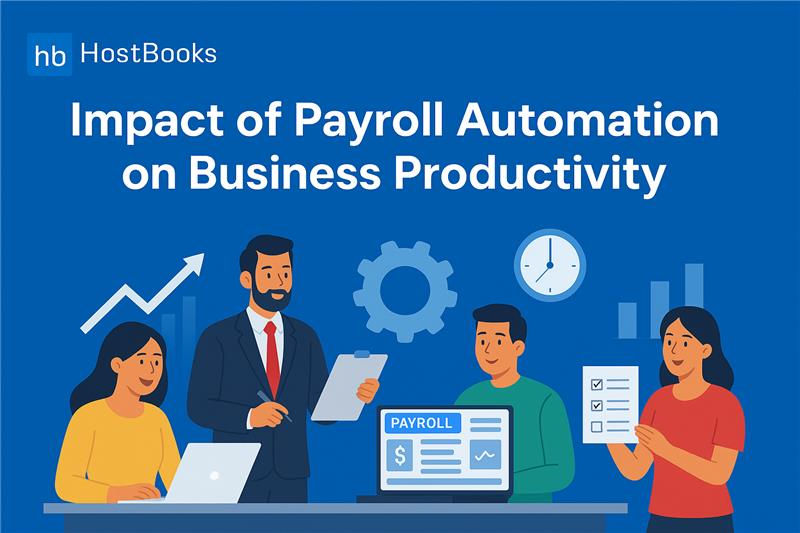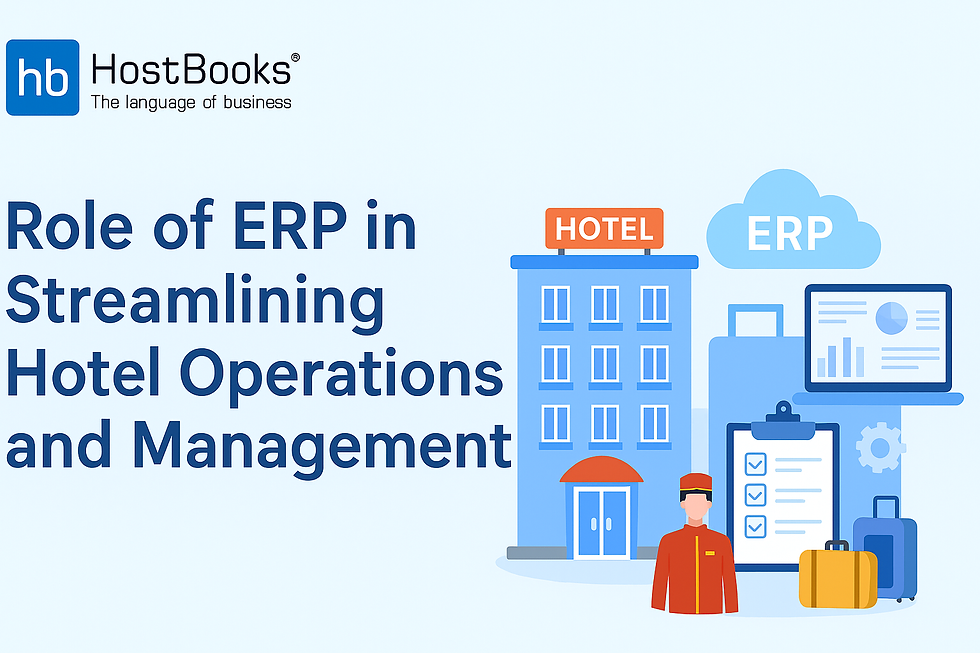Role of ERP in Optimizing Inventory Management for Hotels and Resorts
- Dec 16, 2024
- 4 min read
In the dynamic landscape of the hospitality industry, effective inventory management is crucial for maintaining operational efficiency and ensuring guest satisfaction. Hotels and resorts face the constant challenge of balancing inventory levels to meet fluctuating demands while minimizing costs. This is where Enterprise Resource Planning (ERP) systems come into play, offering comprehensive solutions tailored to the unique needs of the hospitality sector. In this blog, we will explore the pivotal role of ERP in optimizing inventory management for hotels and resorts, highlighting key features and benefits that make ERP indispensable in the modern hospitality industry.

Understanding ERP in the Hospitality Industry
Hospitality industry software has evolved significantly, with ERP systems emerging as essential tools for managing various aspects of hotel and resort operations. An ERP system for guest management integrates all guest-related processes, from reservations and check-ins to billing and feedback, ensuring a seamless experience. When it comes to inventory management, ERP systems provide real-time visibility into stock levels, streamline procurement processes, and enhance overall operational efficiency.
Key Features of a Hospitality ERP System
A robust Hospitality ERP system offers a multitude of features designed to address the specific needs of hotels and resorts:
Integrated Hospitality Software: Integration is at the heart of ERP systems. Integrated hospitality software ensures that all departments—from housekeeping and front desk to food and beverage—are connected, facilitating smooth information flow and coordination. This integration is vital for accurate inventory tracking and management across different departments.
Cloud ERP for Hospitality: Modern Cloud ERP for hospitality solutions offer scalability, flexibility, and accessibility. Cloud-based systems allow hotel and resort managers to access inventory data from anywhere, enabling real-time decision-making and enhancing responsiveness to changing demands.
Hotel Property Management System (PMS): A Hotel property management system is a core component of hospitality ERP, managing room bookings, guest information, and billing. When integrated with inventory management, the PMS ensures that stock levels are aligned with occupancy rates, preventing overstocking or shortages.
ERP Software for Food and Beverage Industry: The food and beverage (F&B) sector is a significant part of hotel operations. ERP software for the food and beverage industry helps manage inventory for restaurants, bars, and catering services, ensuring that ingredients and supplies are adequately stocked to meet guest demands.
ERP Solutions for Restaurant Industry: Specialized ERP solutions for the restaurant industry within a hotel or resort setting streamline kitchen operations, monitor ingredient usage, and manage supplier relationships. This ensures that restaurants maintain optimal inventory levels, reducing waste and controlling costs.
Hospitality Business Management Software: Hospitality business management software encompasses various modules, including inventory management, financial accounting, and human resources. This comprehensive approach allows for holistic management of hotel operations, enhancing overall efficiency and profitability.
Benefits of ERP in Inventory Management for Hotels and Resorts
Implementing an ERP system offers numerous advantages for inventory management in the hospitality sector:
Real-Time Inventory Tracking: ERP systems provide real-time visibility into inventory levels, enabling managers to monitor stock in real-time and make informed decisions. This reduces the risk of stockouts or overstocking, ensuring that resources are available when needed without tying up excessive capital in inventory.
Automated Procurement Processes: With ERP for restaurant management and other hospitality operations, procurement processes can be automated based on inventory levels and consumption patterns. This ensures timely replenishment of stock, minimizes manual errors, and optimizes ordering schedules.
Cost Control and Reduction: By providing detailed insights into inventory usage and costs, ERP systems help hotels and resorts identify areas where expenses can be reduced. Efficient inventory management leads to lower holding costs, reduced waste, and better supplier negotiations.
Enhanced Reporting and Analytics: ERP systems offer advanced reporting and analytics tools that provide valuable insights into inventory performance. Managers can analyze trends, forecast demand, and make data-driven decisions to enhance inventory management strategies.
Improved Guest Satisfaction: Effective inventory management ensures that all departments have the necessary resources to provide excellent guest experiences. From maintaining adequate food and beverage supplies to ensuring that guest rooms are fully stocked with amenities, ERP systems contribute to higher levels of guest satisfaction.
ERP for Hotel Chain Management
For large hotel chains, managing inventory across multiple properties can be challenging. ERP for hotel chain management provides centralized control, allowing managers to oversee inventory levels, standardize processes, and ensure consistency across all locations. This centralized approach enhances efficiency, reduces duplication of efforts, and ensures that best practices are implemented throughout the organization.
Choosing the Right ERP System for Your Hospitality Business
Selecting the appropriate hospitality business management software is critical for optimizing inventory management. When evaluating ERP systems, consider the following:
Scalability: Ensure the system can grow with your business, accommodating additional properties or increased operational complexity.
Customization: Look for solutions that can be tailored to your specific needs, whether you operate hotels, resorts, restaurants, or a combination of these.
User-Friendly Interface: A system that is easy to use will facilitate smoother adoption and reduce training time.
Integration Capabilities: The ERP should seamlessly integrate with existing systems, such as point-of-sale (POS) systems, accounting software, and other essential tools.
Support and Training: Choose a vendor that offers comprehensive support and training to ensure your team can effectively utilize the system.
Conclusion
In the competitive hospitality industry, optimizing inventory management is vital for operational efficiency and guest satisfaction. ERP systems, with their comprehensive features and integrated approach, provide hotels and resorts with the tools needed to manage inventory effectively. From cloud ERP for hospitality to specialized ERP software for the food and beverage industry, these solutions offer real-time visibility, automated processes, and valuable insights that drive better decision-making.
By investing in a robust ERP system, hospitality businesses can streamline their inventory management processes, reduce costs, and enhance the overall guest experience. As the industry continues to evolve, leveraging advanced hospitality ERP system features will be key to staying ahead and achieving long-term success.
At Hostbooks, we specialize in providing tailored ERP solutions for the hospitality industry, helping you transform your inventory management and drive your business forward. Contact us today to learn how our integrated hospitality software can revolutionize your operations.



Comments